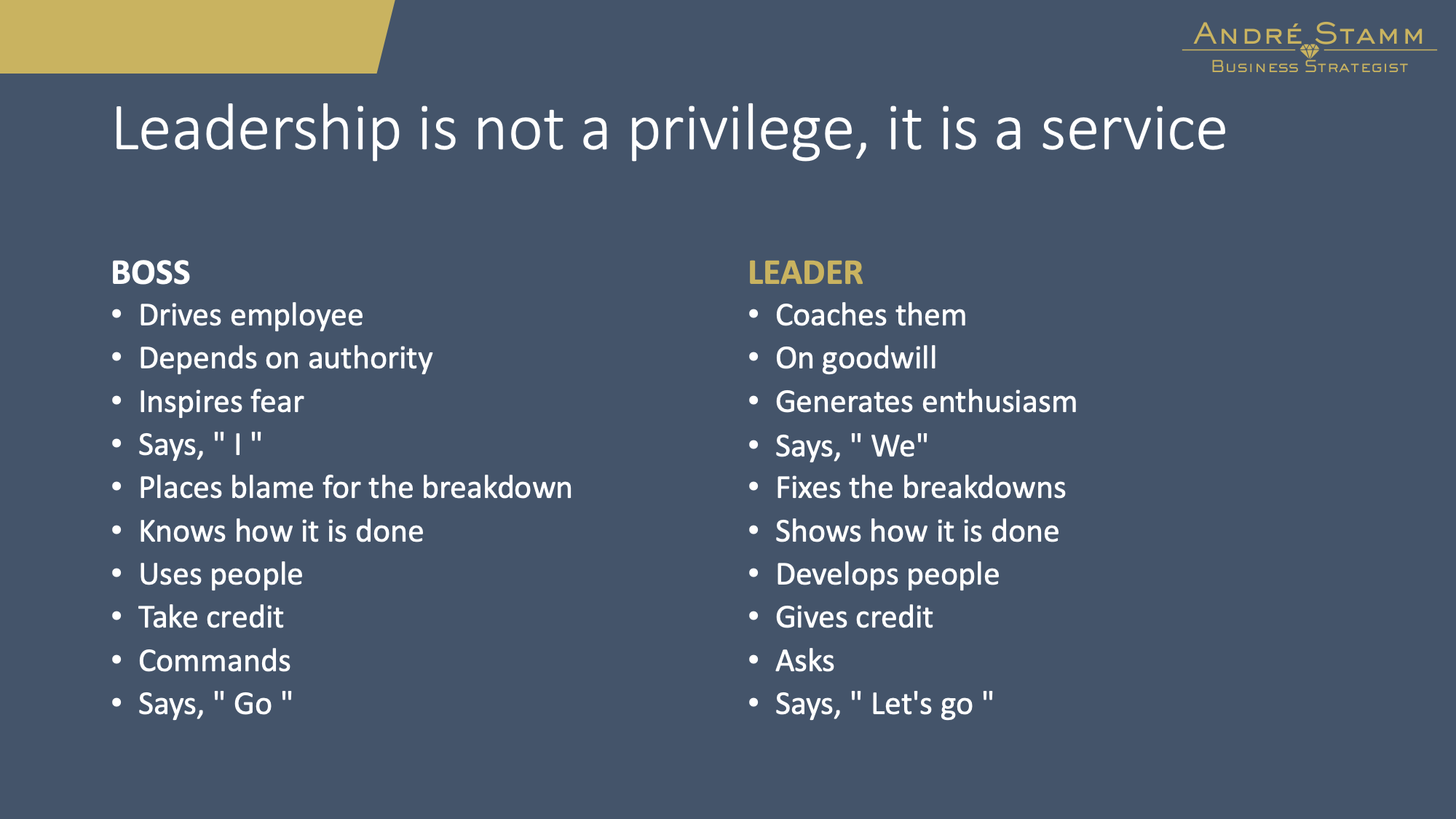Is the cooperative management style a sign of weakness?

Is the cooperative management style a sign of weakness?
Recently, at the six-monthly meeting in one of my entrepreneur mastermind classes, I was leading a group where two entrepreneurs discussed whether the cooperative management style of one entrepreneur should be interpreted as a weakness.
But what does a cooperative management style mean for the entrepreneur at all?
The answer was that, if possible, he would let his employees decide and he would give them the necessary support for the decision-making process.
“Yes of course!” was the prompt answer.
In the course of the meeting, the managing director first explained the model, which divides the different people in a company into specialists, managers and entrepreneurs:
Each person automatically assumes one of these three roles.
Depending on the role, different products are created as well as different tasks are performed in and on the company.
The skilled worker produces the product for the customer.
The executives take care of the organizational procedures and the management of the processes within the company.
And the entrepreneur? Yes, the entrepreneur works AT the company and thus takes care of the company’s future.
Ideally, he or she does not work IN the company, because that is what the specialists and managers are for.
If the entrepreneur or manager had to make a decision for his employees, the person would automatically have to take on the skilled worker role and thus take on other tasks in the company. That is not economical.
Accordingly, the entrepreneur, like the manager, cannot be involved in the individual decisions at the level of the specialists. Any attempt would end in micromanagement and thus endanger the company. Further growth of this company is therefore impossible.
Before I tell the story further let us have a look at the different management styles.
The different management styles:
Within the group we have identified the following management styles:
- leadership by force
- leadership through tasks and processes
- leadership by goals
- leadership through flexible goals
- emotional leadership with sense
The management styles build on each other and so you first have to master the simpler management style and then go to the next level. Any attempt to lead with a management style that the employee has not yet learned will not work. Conversely, however, it is also so that employees who are accustomed to leadership by flexible goals, for example, no longer want to be and will be led by force. Accordingly, it represents a growth process for the entire company.
Leadership is not a privilege – It is a service !
In the discussion it was also determined that already with the management style by “tasks and processes” a cooperative management makes quite sense.
More and more we are realizing that leadership is not a privilege but a service. It is the provision of a meaningful framework, the provision of the necessary infrastructure, the provision of time, yes, ultimately the provision of all necessary resources so that the employee can carry out his work himself in the best possible way.
If the skilled worker cannot carry out his work independently, be it due to a lack of resources or due to a lack of willingness or competence to make a necessary decision, the manager is required to solve these conflicts.
The cooperative management style is a strength.
Correspondingly, we then agreed in the round that a cooperative leadership style is rather a strength, because a manager can only lead cooperatively if he has the necessary strength and self-confidence in himself and can let things go and still remain in control of the result.
It was also particularly noticeable and emphasized to us in the group that a good manager must always assert himself and make his decision, be it
a.) for the employee to decide or
b.) for the fact that he has to take the decision himself,
is of crucial importance. Because even if you can delegate tasks, you cannot delegate responsibility.
This is what makes an excellent leader, he will take the blame for everything that goes wrong, and everything that goes well will go to the team.
That is the difference between boss and leader.
